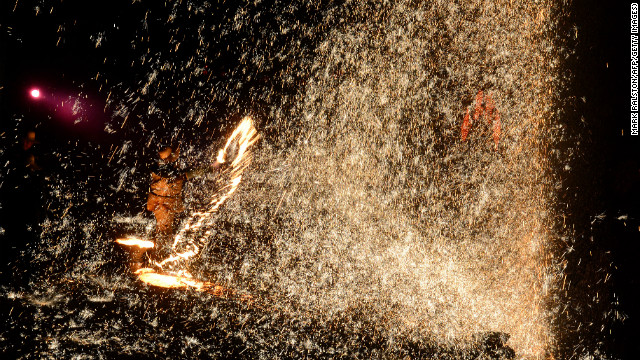China's manufacturing growth slows
March 1, 2013 -- Updated 0338 GMT (1138 HKT)
Industrial production appears to be slackening in China.
STORY HIGHLIGHTS
- China's manufacturing sector grew more slowly in February, according to HSBC
- The survey suggests the country's recovery could be slackening.
- The official purchasing managers' index dipped to 50.1 from 50.4 in January
(Financial Times) -- China's manufacturing sector grew more slowly in February, according to a survey that suggests the country's recovery could be slackening.
The official purchasing managers' index dipped to 50.1 from 50.4 in January, data on Friday showed. It was the fifth consecutive month above the midpoint of 50, which indicates an expansion in industrial activity, but the decline in the index means that the pace of expansion has likely slowed.
China's economy bottomed out in the third quarter last year and has accelerated since then, propelled by a surge in lending and a pick-up in government spending. But concerns about a rebound in inflation and high property prices have led Beijing to tap the brakes in recent weeks, and this shift in policy stance appears to have had an impact on the PMI.
"The recovery remains fragile and could falter as monetary policy conditions are tightened," said Liu Ligang, an economist with ANZ.
The breakdown of the PMI showed that the output index edged down to 50.2 in February from 50.3 in January. The new orders index -- an important leading indicator for future activity -- fell sharply to 50.1 from 51.6 a month earlier.
China's central bank last week drained Rmb910bn ($146bn) from the economy, a record weekly cash withdrawal in open market operations, to counteract a huge jump in credit issuance by the country's financial institutions in January.
Several cities have also started to raise the cost of loans available to first-time homebuyers after property prices showed signs of rising too quickly.
"The balance of consideration in the macro[economic] stance is shifting," said Louis Kuijs, an economist with Royal Bank of Scotland. "We do expect the government to contain the overall credit expansion."
A separate PMI survey published by HSBC also weakened in February, falling to 50.4 from 52.3 in January.
Chinese data are heavily skewed in the first two months of the year by the country's lunar new year holiday, which took place in January in 2012 but in February this year, disrupting factory activity for the better part of a month.
Nevertheless, as the PMI is a survey that measures sentiment rather than actual activity, economists say the holiday has only a limited impact on the numbers. Moreover, the national statistics bureau adjusts the index to account for seasonality so the final reading should be a fairly good reflection of the state of the manufacturing sector.
China's Communist party gathers at the end of this week for its annual ceremonial parliament, where the shift to a new generation of leaders is expected to be formalised with Xi Jinping and Li Keqiang beginning their roles as president and premier, respectively.
Mr Li has said he wants to make a renewed push for urbanisation, which some analysts believe could lead to a new wave of investment in infrastructure and housing.


No comments:
Post a Comment